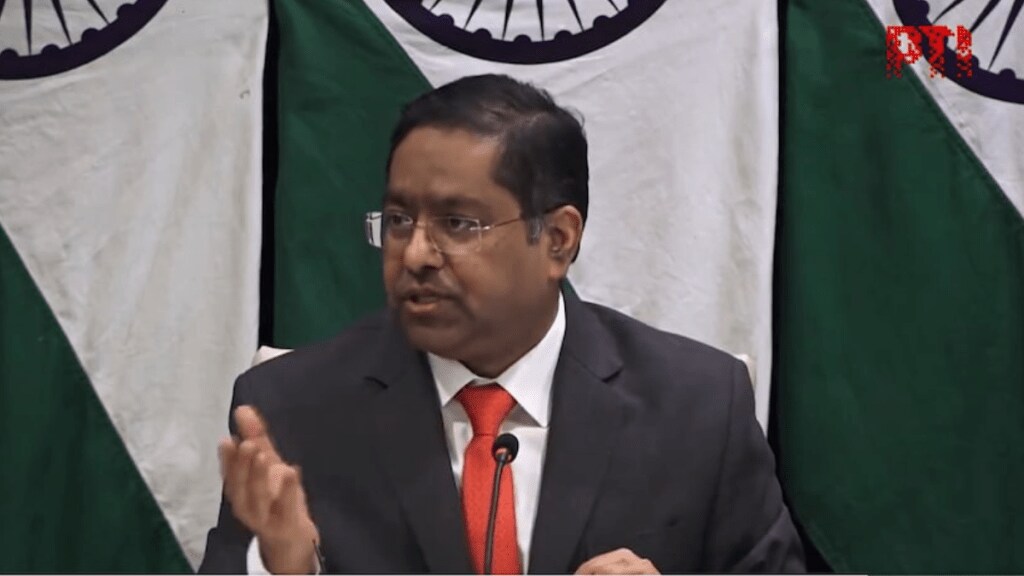India has issued an advisory to its citizens in Bangladesh, urging them to avoid travel and remain indoors as New Delhi closely monitors the volatile situation. The advisory comes in response to violent protests in Bangladesh, sparked by a controversial job quota system that has led to significant unrest and casualties.
Safety Measures and Helpline
Responding to media queries at a weekly briefing in New Delhi on Friday, Randhir Jaiswal, the official spokesperson of the Ministry of External Affairs (MEA), stressed that the advisory aims to ensure the safety of Indian nationals in Bangladesh. “India sees this as an internal matter of the country and issued an advisory for Indian nationals, including our students, resident in Bangladesh for their safety and assistance if required,” Jaiswal stated.
He added, “Helpline numbers operating on a 24×7 basis have been given for people to reach out. External Affairs Minister S Jaishankar is himself following the matter closely. Our High Commission will be providing regular updates. I will also be posting regular updates. I would urge family members to follow us for the latest developments. We remain committed to providing all possible assistance to our nationals in Bangladesh.”
Approximately 15,000 Indian nationals reside in Bangladesh, which includes around 8,500 students. Jaiswal assured that the High Commission is in constant touch with local authorities to ensure their safety amid the unrest.
Escalating Protests
On Friday, Bangladesh awoke to a nationwide shutdown and severe disruption to communications due to violent protests against a job quota system. The protests, mainly led by students, have resulted in over 30 deaths and pose a significant challenge to Prime Minister Sheikh Hasina’s government. The unrest began after the high court reinstated a quota in government jobs for the children of veterans of the 1971 war of liberation from Pakistan, leading to widespread dissatisfaction.
The situation worsened when students called for a nationwide shutdown on Wednesday, supported by the opposition Bangladesh Nationalist Party (BNP). Clashes between protesters and pro-government student groups, along with police intervention, have exacerbated the violence. Videos have surfaced showing police vehicles driving into protestors in Dhaka, further inflaming tensions.
Information Blackout
The government’s decision to block mobile internet and telecommunications services has made it difficult for the outside world to obtain reliable information about the situation. Websites of major newspapers like Daily Star and Dhaka Tribune, as well as those of the foreign and home ministries, were inaccessible, further complicating communication efforts.
Political Context
The current unrest is rooted in a longstanding issue. Although Prime Minister Hasina’s government scrapped the job quota for freedom fighters’ children in 2018, it was reinstated by the high court in June this year. The Supreme Court was scheduled to hear petitions challenging this ruling on August 7, but the government’s urgent appeal has advanced the hearing to Sunday.
Hasina’s government, now in its fifth term following a record fourth win in general elections, faces accusations of favouring supporters of her Awami League party in various government sectors. Critics argue that the job quota, which reserves over 50% of government jobs, disproportionately benefits Awami League affiliates and lacks transparency regarding the list of 1971 war veterans.
Economic Implications
Government jobs in Bangladesh are highly coveted due to their stability and benefits. Protesters argue that these positions should be awarded based on merit rather than skewed reservations. The economic development of Bangladesh, set to graduate from the group of Least Developed Countries (LDCs) by 2026, contrasts sharply with the current political instability.
India’s Strategic Interests
India, which has invested billions in Bangladesh over the past decade to enhance trade and energy connectivity, is particularly concerned about the safety of its nationals. New Delhi’s advisory reflects its broader strategic interests in maintaining stability in Bangladesh, crucial for economic ties with India’s northeastern and eastern regions.


